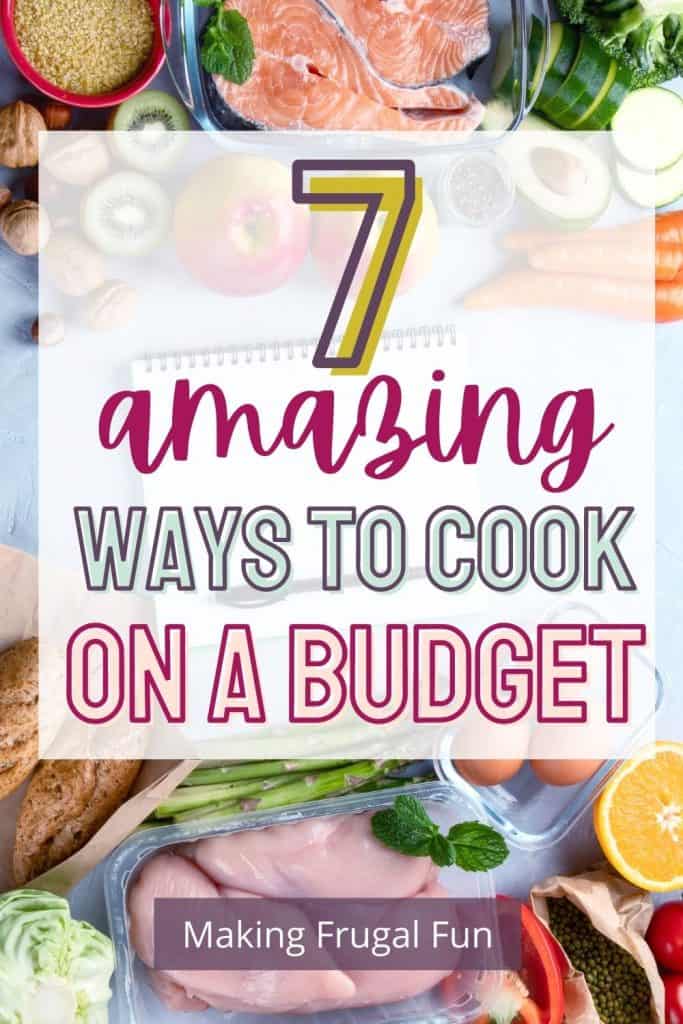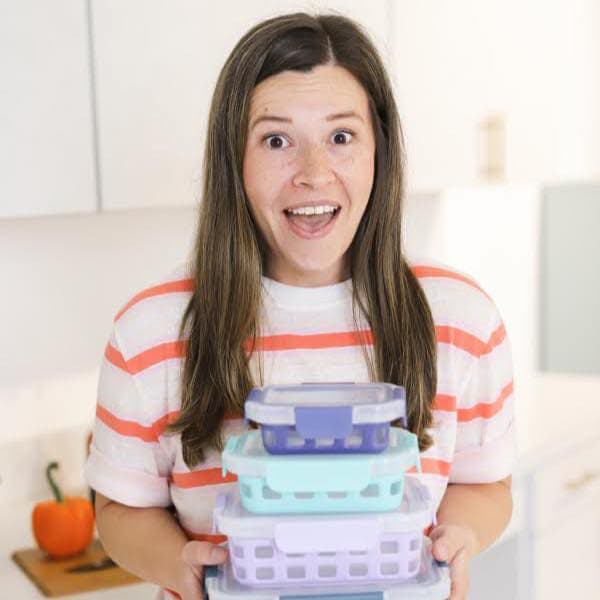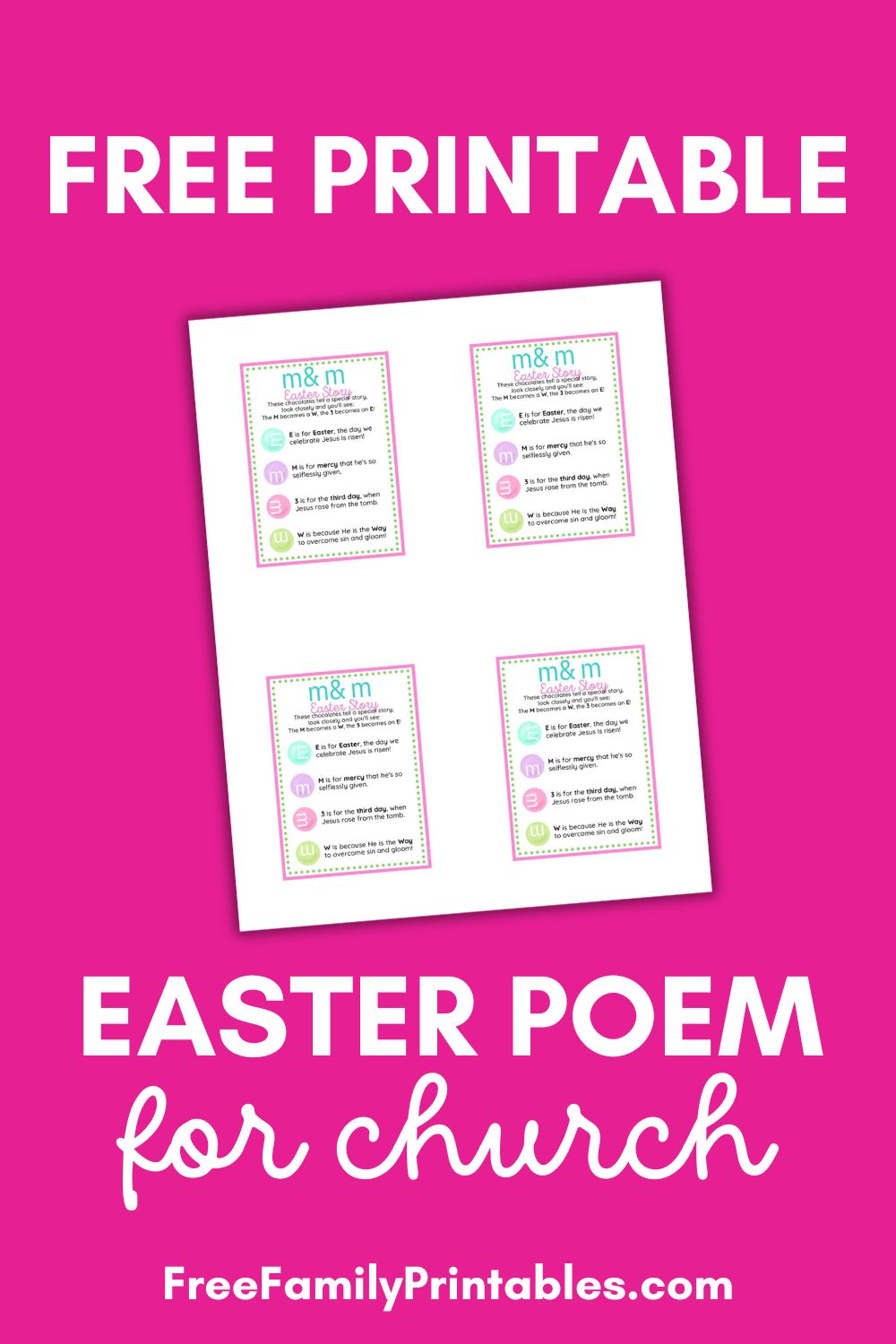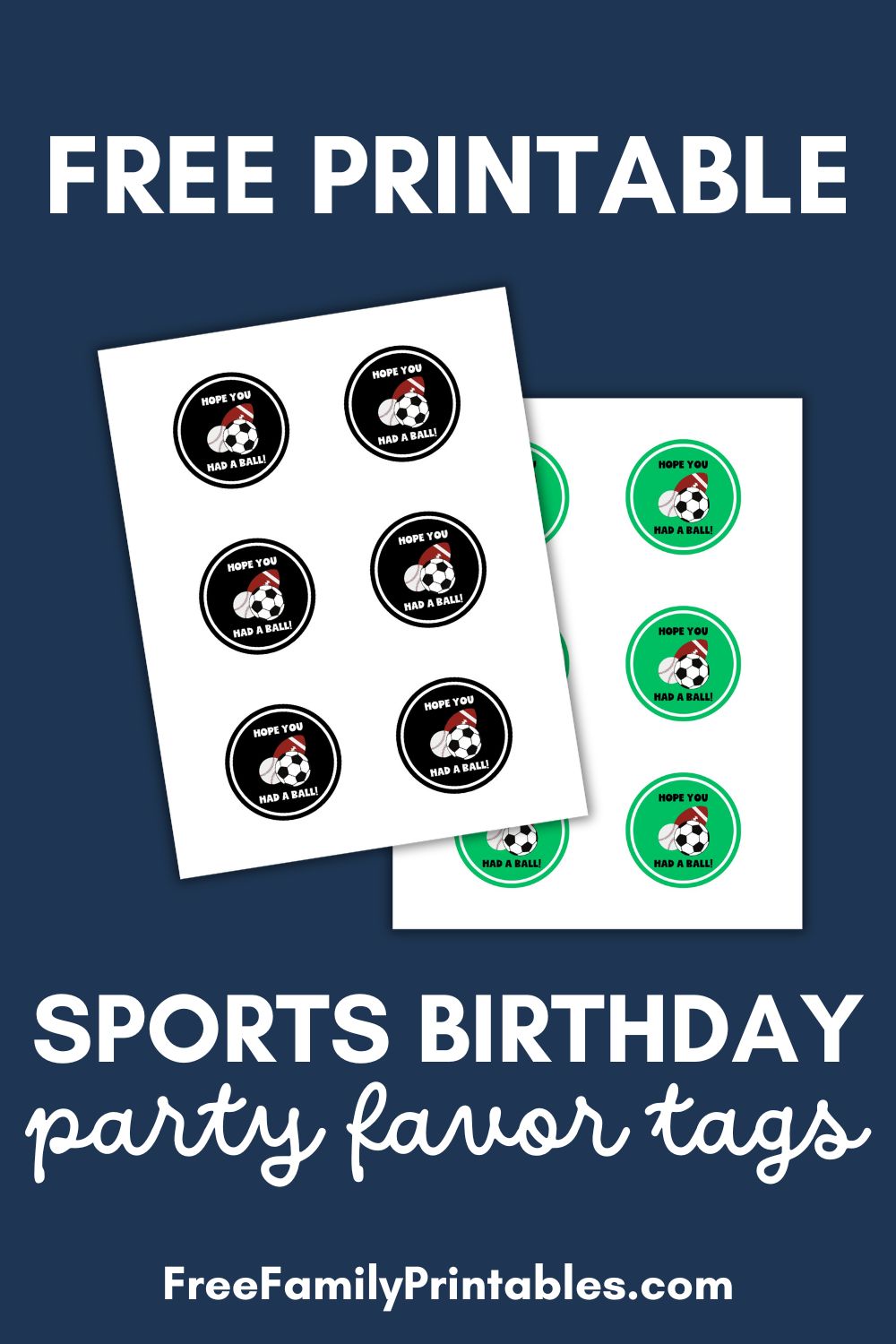Learning how to cook on a budget is an important skill that can help you save a large chunk of change each month.
When we started our debt free journey, one of the first budget items that we realized was totally out of control was our grocery and food spending.
The first thing that had to go was eating out at restaurants and grabbing fast food. Cooking our meals at home immediately saved us hundreds of dollars each month, but we still felt that our grocery bill seemed high for our family size.
We knew we could do better on our food budget, but it was going to take some work!
I quickly turned my attention to budget friendly dinners using inexpensive ingredients, and created a meal plan our family could actually stick to!
Trust me, I am not a professional home chef (not even close). Out of necessity for our debt free goals, I have learned to love cooking and found ways to make the process easier for our busy lifestyle.
I hope these 7 amazing ways for how to cook on a budget will help you save money and create a plan that includes cheap meal ideas (that are also healthy and delicious!)
You’ll also love: How we cut down our family expenses
Get Into Meal Planning
The number one thing that helps us save hundreds of dollars a month, and stick to a grocery budget of $100 per week for our family of 5, is meal planning.
Getting in to meal planning can sound intimidating if you’ve never done it before. It’s truly a necessity if you want to save big on groceries, and still eat all of the meals you love most.
The benefits of meal planning include:
- Eliminate decision making
- Prevent food waste
- Stick to grocery budget

Eliminate Decision Fatigue with a Meal Plan
If you already have all of your meals planned out for the week, that’s one less thing to think about! Let’s face it, deciding what to eat for dinner every single night is just plain exhausting.
The last thing you want to do after a full day of work, school, sports, and activities is decide what to make for dinner, locate all the ingredients (or make a last minute stop at the store), and cook.
Heading in to the week with a meal plan means you have already shopped for the groceries you need, decided which night you will eat each meal (possibly planning easy, quick meals for busy nights), and maybe even prepped your meat, veggies, or seasonings ahead of time. Doesn’t that sound so much better?
Prevent Food Waste by Utilizing Leftovers
Some people think our meal plan is a little bit strange, as it incorporates the use of leftovers every other day. This works well for us because it means cooking less.
Basically we already know what we are going to cook an entire month in advance. We cook on Monday, Wednesday, and Friday and eat the leftovers on the alternating days. I’ll admit, we do get tired of leftovers at time, but overall this strategy works really well at helping us stick to our plan!
You can see a sample of our meal plan and grab my free printables by filling out the form below:
Sticking to Your Grocery Budget
The most advantageous part of having our meals planned out in advance, is that we are much more likely to stick to our grocery budget.
This is because the planning is already done, so we can make our grocery list knowing exactly what we need. We also eat many of the same meals from one month to another, and therefore our pantry is full of items we already use. This allows us to buy in bulk and waste less food.
Read Also: 14 Ways to Save Money on Groceries
Use a Discount App at the Grocery Store
I am 100% not the couponing type. I love the idea of using coupons and getting all those free goodies that I’m always binging on “Extreme Couponers”. However, I’ve tried and failed many times at all the coupon lingo, rules, and organization required.
One thing I do find easy to use is the Ibotta cash back app. It allows you to earn cash back (sometimes as much as 100%) on the groceries you buy.
You can sign up for the Ibotta app here and get a welcome bonus when you redeem your first offer! Yay!
The key is to not buy things just because you get cash back (unless it’s 100% then go right ahead!) However, sometimes buying the generic item is actually still cheaper than using your Ibotta rebate. You just need to be paying attention!
Another way to use the app is to see what items are on sale or offer a rebate, and plan your dinners, lunches, and snacks around these items!
Read also: How to Use the Ibotta App for Grocery Cash Back
Shop at Discount Stores
Shopping at discount stores is a great way to save extra cash in your grocery budget. Grocery discount stores such as Aldi, Costco, or Sam’s Club offer lower prices, but often at the expense of convenience. However, if you learn how to shop these popular discount stores, you can benefit from the decrease in your grocery budget each month!
Here is a list of several popular discount stores, and why the groceries are so much cheaper than your local “run of the mill” grocery store:
Reasons Why Aldi is so cheap
- Aldi avoids brand name products
- There’s a much smaller selection (you won’t find all your favorites here!)
- They keep staff low (less people to retrieve carts, hence the need to deposit a quarter and return your own cart)
- You need to bring your own bag
Reasons Why Costco is so cheap
- Again with the need to bring your own bags
- Limited store hours (less staffing)
- Fewer selections and items are in bulk
- You have to buy a membership (but savings are usually greater than the annual member price)
Other discount grocery stores like Trader Joe’s, WinCo, and Sam’s Club are so cheap because the follow suit…keeping operational costs low having smaller stores with reduced hours, stocking their own generic brands, and not running commercials or other large ads.
These cost cutting strategies benefit you the buyer with cheaper grocery prices! If you’re okay with a few sacrifices of convenience (like bringing your own bags), then discount stores can be a great way to reach your goal of cooking on a budget.
Read: How to Save Money at the Grocery store (without coupons)

Use the Slow Cooker
Cooking meals regularly in the slow cooker can help you save money! If you’re wondering how a simple kitchen cooking device can help you cut costs in your monthly food budget, you’ll love this list.
Here are a few ways a Crock Pot can help you cook on a budget.
A slow cooker makes it easier to stick to your meal plan.
Since you can basically throw everything in your crockpot when you wake up in the morning, and come home later that evening to a home cooked meal, you’ll be less tempted to grab fast food or order take out when hunger strikes.
Easily create cheap, hearty meals like soups and stews.
Slow cookers make it easy to make delicious comfort foods like soups and stews. You can throw a lot of different inexpensive ingredients like beans, cheaper cuts of meat, and vegetables into the crockpot and have a filling meal ready for you at the end of a long day.
Cook in Bulk and eat well all week.
Using a slow cooker is a great way to cook meat in bulk and use in several meals throughout the week. You can make shredded chicken or pulled pork that will last for months in the freezer to use in dinners or packed lunches. This will again help you eat at home more, and take advantage of sales on chicken or beef.
Here are some easy slow cooker recipe ideas to get you started!
Make Regular Pantry Meals
If you want to cook on a budget, you should start by shopping your own pantry! You probably have way more food hiding in the back of your pantry or fridge than you even know about.
Keeping a pantry or fridge inventory, and staying organized so that you can see everything that you already have on hand, are the best ways to prevent food waste, and stay on budget.
How to save money by pantry cooking
- Each week before you create your meal plan, check your pantry first!
- Take note of which pantry staples you have on hand.
- Compare these items with a list of your favorite meals, and see what you can make from them.
- Create a shopping list of the items you need to complete these meals.
- Save money and prevent food waste by meal planning from your pantry!
Don’t Waste Leftovers
Leftovers are a huge part of our meal plan. If you usually have leftovers, saving them to eat for lunch or dinner throughout the week is a great way to prevent food waste and save money.
In our family, we actually PLAN on having leftovers. We cook 3 times per week (usually Monday, Wednesday, and Friday), and double our recipes so we can eat leftovers the following night.

It’s not necessarily the eating of leftovers that saves money for us (you still need to buy extra food in order to have food for 2 nights). What helps us is the fact that cooking less during our busy week helps us stick to our meal plan! We don’t get exhausted from cooking every night, which is often a reason people turn to fast food or restaurants (effectively busting their budget!)
This “leftover” budget cooking plan has been a lifesaver for our family (and food budget).
If you’re wondering if we get tired of eating the same things so often, we do! However, we are always looking for creative ways to use leftovers in new and fun meals.
You’ll love these leftover recipes:
Freeze Your Extra Food
Another way to save money (and time) is to take advantage of freezer cooking.
When you cook in bulk and freeze the extra food, it allows you to have meals already prepped and ready on busy nights when you are tempted to stop and grab fast food.
You can also buy meat, vegetables, and seasonings in bulk and have a freezer meal prep session. Prepare several meals at once in order to be ready for busy seasons like back to school, or the birth of a new baby.
Learning how to freeze and store leftover or extra food will allow you to take advantage of sale prices and stock up on meat, fruit, or other items that would normally go bad.
Read this next: How to Prevent Freezer Burn
You can cook on a budget!
Learning to cook on a budget is completely attainable! If you’re a beginner home cook (like myself), it can seems really intimidating to cook from scratch or plan meals.
I promise that you can learn how to prep and plan, and cook on a budget like a homemaking pro!
If you need a few ideas of budget friendly meals, make sure you grab my sample “leftover” meal plan with recipes down below!






